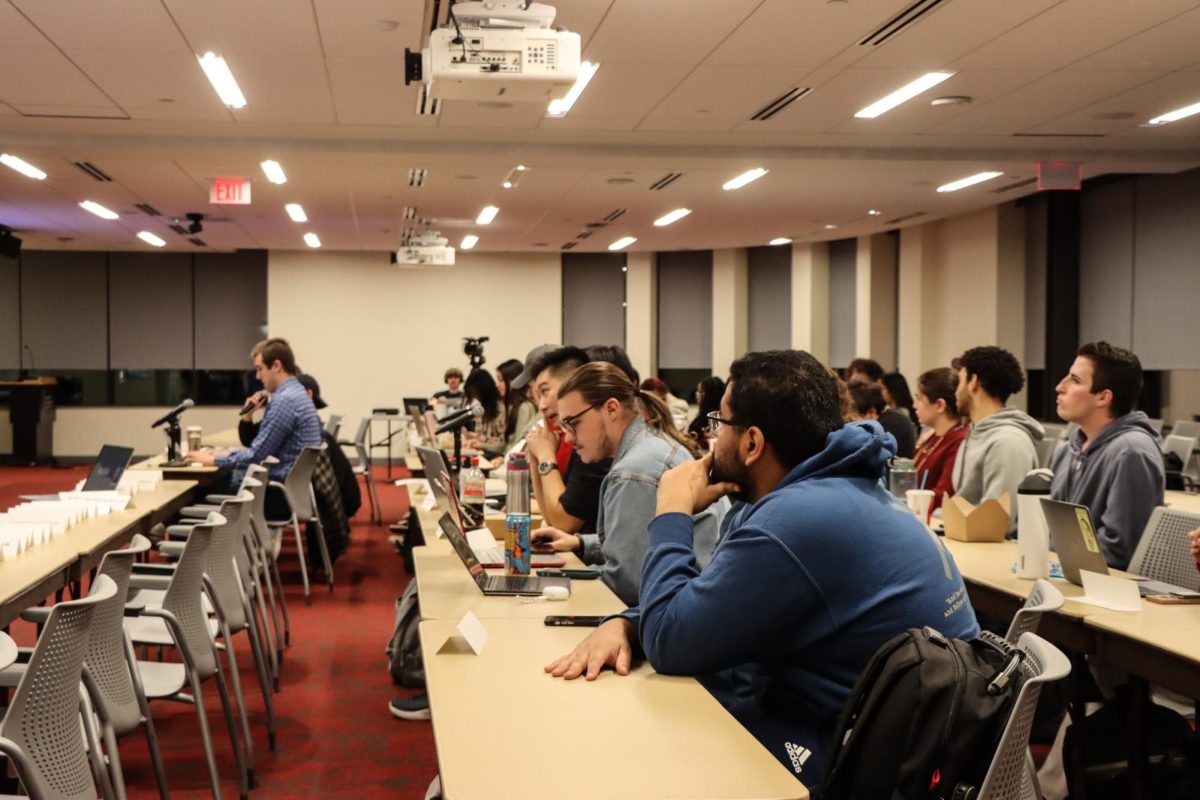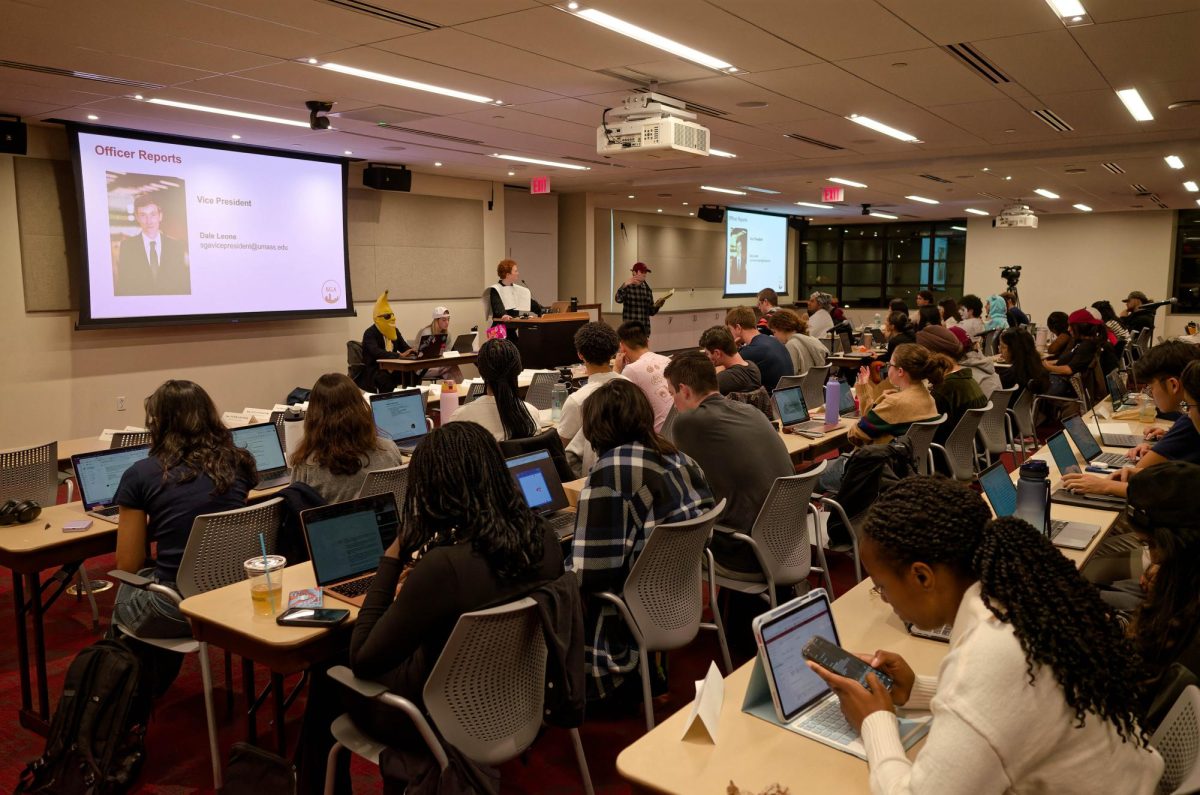
The Student Government Association met Monday night for the second meeting of the semester, as a long line of speakers addressed campus policies and cultures including confidential informants.
The meeting featured a presentation from Facilities and Campus Services Communications Manager Jim Hunt. His slideshow detailed current and future construction plans, including renovations to South College and Marks Meadow. Hunt also discussed a study being done on possible renovations to the Student Union.
“The Student Union is old, really old,” Hunt said. “It’s just inadequate for the task. It was built in the 1950s and it needs to be replaced.”
Hunt also recognized the frustrations students have with construction on campus, but said, “It will mean more to you when you go out to get (a) job,” suggesting that such renovations will improve the University’s reputation.
Ways and Means Chairman Adam Ladd presented a new proposal to generate revenue for Registered Student Organizations by raising students’ activities fees.
“We want a fairly significant increase, and that would have to be voted on by the students,” Ladd said. “I’m looking to see a large increase so that we have more money to help our RSOs.”
Ladd continued, “A lot of groups did not get the funding they deserved because there wasn’t enough money. I believe that an increase in fees isn’t absurd to ask for.” Ladd promised to give a more detailed presentation in a future meeting.
His proposal was met with questions and concerns from fellow SGA members. After Ladd took a poll to see whether the increase of fees for students’ activities would be too much of a financial burden for students, a significant number of the members raised their hands.
Ladd said that this proposal is still in its preliminary stages and that he plans to gather more information to present in the future.
A large portion of the meeting focused on the debate surrounding a recent Boston Globe article about a UMass student and confidential informant who died of a heroin overdose last October. A recess was called while senators summarized the news for those still unaware of the article.
Most of the room was critical of not only the case but the confidential informant program in general, though some opinions came up in defense of the program – notably that of SGA President Vinayak Rao.
“For someone to be recognized as a CI, that is someone that is not arrested or charged,” Rao said, in clarification of claims that CI’s should be checked for signs of drug use. “There can’t be any physical checks or eye dilation checks or any such checks because that would involve the CI being arrested or charged, and many safety checks that the police department wants are not possible because of CI confidentiality.”
Rao continued to explain that he supported the confidential program despite its faults, while acknowledging that changes need to be made and that debate on the subject would continue at the next meeting.
The SGA is currently preparing an official statement on the Globe’s article and the University’s policy.
William Keve can be reached at [email protected].


















